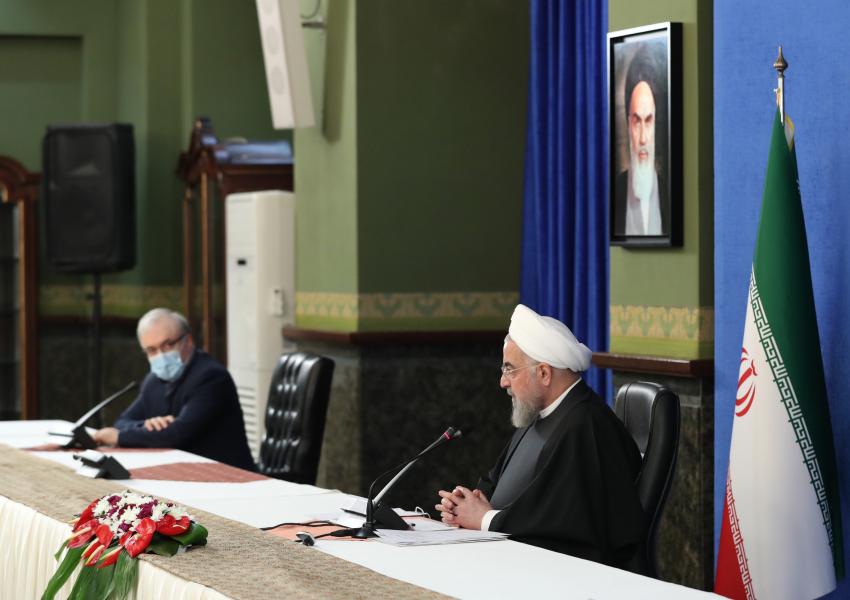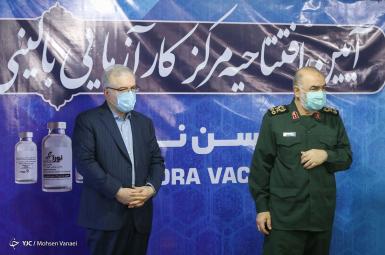
Iran’s Government Caught In Covid Bind After Khamenei Bans UK, US Vaccines
Iran’s President Hassan Rouhani on Saturday [January 9] told a meeting of the coronavirus task force that the Iranian people were not a vehicle for testing vaccines – a remark he explained only in terms of opting out of any trials carried out by foreign companies.
Rouhani’s government has been left in a bind by a ban announced on Friday by Ali Khamenei, Iran’s Supreme Leader, on importing United States or United Kingdom vaccines. Rouhani faces growing popular demand for vaccinations, with some regional countries, such as Israel and Saudi Arabia, already weeks into injecting vaccines produced in the US.
Khamenei delivered a speech on Friday banning the purchase of US and UK vaccines on the grounds - without presenting evidence - that they could be unreliable. In a Twitter post subsequently deleted by the social media giant, Khamenei wrote it was “not unlikely they would want to contaminate other nations.”
Iranian officials have issued confusing and sometimes contradictory statements over plans for vaccinations. Dr Kiyanush Jahanpur, spokesman of Iran’s Food and Drug Administration (FDA), on December 31 said Iran would shortly begin human testing with 50,000 volunteers of a Sars-CoV-2 (Covid-19) vaccine being co-produced with Cuba. Jahanpur told Mehr news agency that a second phase of human testing underway in Cuba, with the supervision and cooperation of Iran’s Pasteur Institute, would be followed by third phase starting in Iran in late January.
Earlier on, Tehran’s plans appeared to rest on its request to the World Health Organization’s Covax mechanism for 16 million doses, sufficient for inoculating 8 million people or roughly 10 percent of the population. Officials have also promised a homegrown vaccine that they say is currently entering limited human testing phase but will not be available at least for six months.
The government has also complained that US sanctions prevented payment for the Covax mechanism. While payments for medicine have proved a difficult area given banks’ wariness of US sanctions, Iran’s Central Bank Governor on December 24 confirmed that the US Treasury’s Office of Foreign Assets Control (OFAC) had issued a license for Iran to buy Covid-19 vaccines through the WHO.
A health official said on December 12 that Iran had in any case told the WHO it did not intend to import the Pfizer Covid-19 vaccine. Mostafa Ghanei explained on IRIB television that Iran lacked suitable planes or other means to transfer the vaccine, which must be kept at minus 70 degrees Celsius until used.
After Khamenei’s ban on Friday, Iran’s Red Crescent Society cancelled a shipment of 150,000 doses of the Pfizer-BioNTech Covid vaccine donated by US philanthropists, which would not face payment problems.







